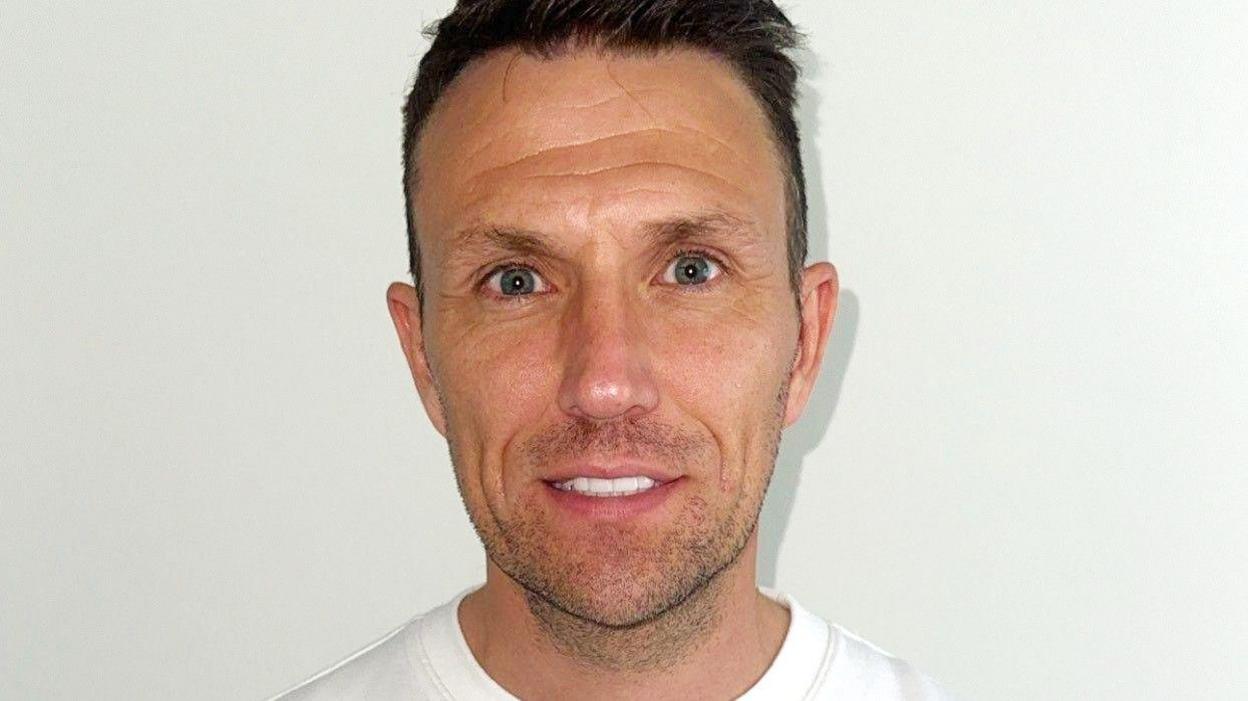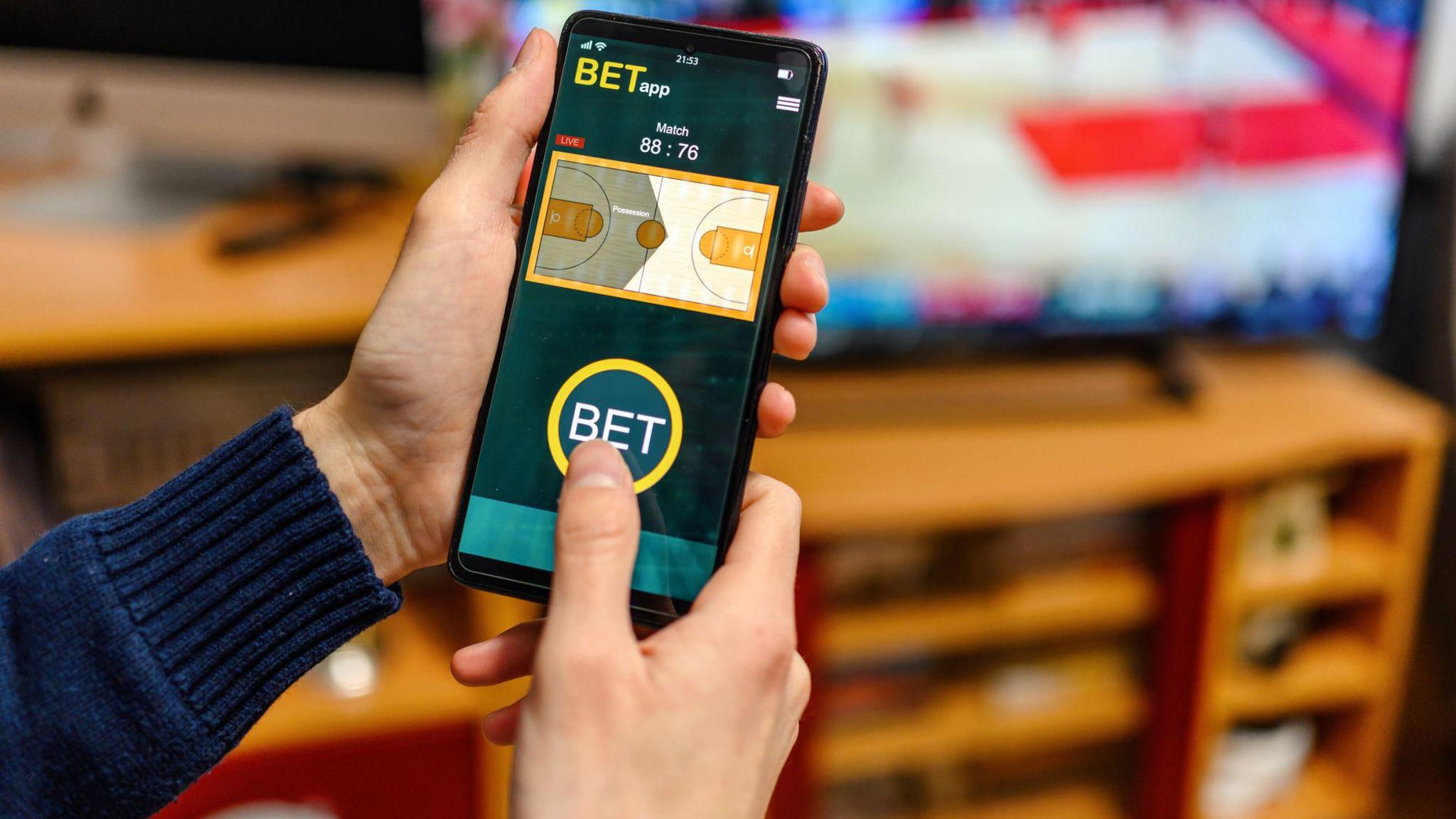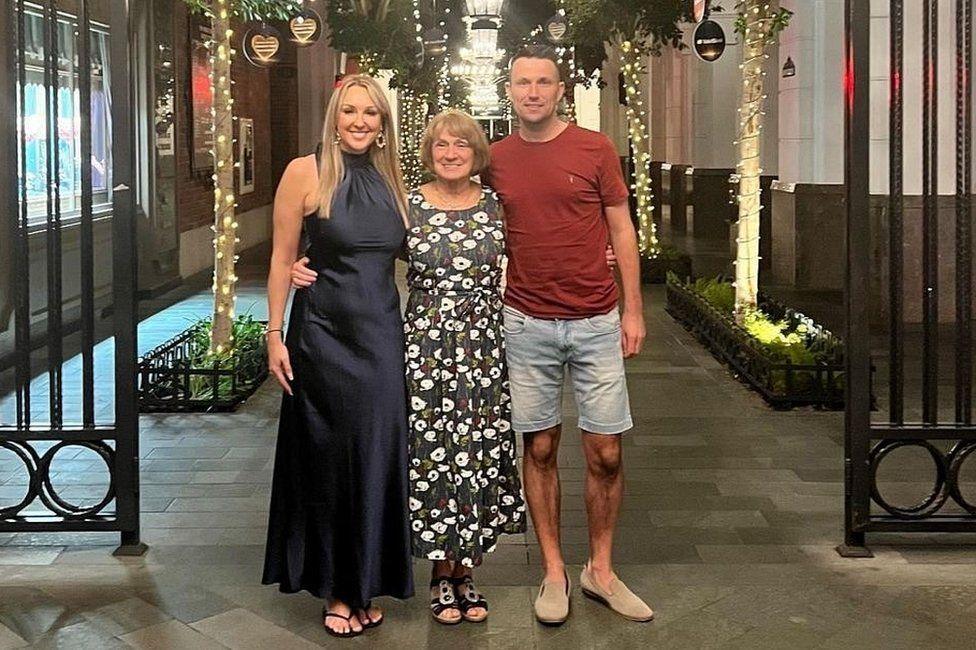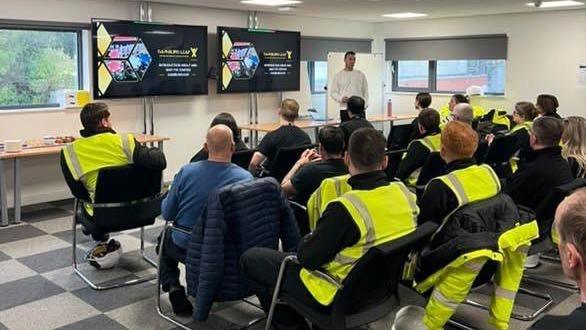I started gambling with my paper round money - since then I've lost £250,000

Colin Brown started gambling at the age of 15
- Published
When Colin Brown was 15 he put 50p in a slot machine and won £4.80. The feeling was so good he returned to the arcade with the wages from his paper round and spent the lot.
It was the beginning of a gambling addiction which is estimated to have cost the 42-year-old from Fife more than £250,000.
He could lose thousands in minutes on online gambling sites and on one occasion he lost £3,500 in a single roulettte spin.
The distillery worker shared his story as the UK government confirmed bookmakers and casinos would be forced to fund NHS services that tackle problem gambling through a statutory levy.
Colin told BBC Scotland News he would spend all his wages within hours of them going into his account.
He took out dozens of loans, credit cards and stole from him mother's purse. He lost his house and partner and felt suicidal every day.
"My brain was wired to gamble from a young age," he said.
"I won young so I thought it was easy and I felt the buzz.
"My brain had that dopamine release early and I was constantly chasing that same feeling after that."
Gambling slots online to be limited to £5 per spin
- Published27 November 2024
By the time he was 18 he was at Gamblers Anonymous but was gambling from his phone during the breaks.
And at 21 when he won £12,000 he just increased each bet from £20 to £500.
"You don't get the same dopamine release from the small bets, your brain is craving the chemicals that bigger bets give you," he said.
"It's like any other addiction, you're craving the buzz it gives you. Gambling, there was no feeling like it for me."
He tried to stop gambling hundreds of times and even had himself banned from all betting shops in Fife and online.
But the craving would become so strong he would drive to nearby cities to place bets or ask friends to put bets online for him.

Colin was even betting in the breaks at Gamblers Anonymous
His mother and sister have paid off dozens of his loans and debts over the years.
"I wouldn't buy anything for myself and my fridge would be bare because I would rather spend money on a bet," he said.
He would go to his mother's house to eat.
"They believed in me which is what made it so hard because I was letting them down all the time," he said.
Then 15 months ago, after losing £1,500 in three minutes online, he decided to start educating himself on how dopamine and the brain worked.
He listened to people on podcasts who had turned their life around and experts on the brain and on happiness, and it gave him a different outlook.
Now he has set up his own business, Gambling Leap, to help other gamblers free themselves from the addiction.
Colin says the traditional therapy-based group meetings follow a model from 50 years ago - and there are alternatives that might work better for some gamblers.
He believes the way to tackle addiction should include educating people on how chemicals and hormones in the brain influence decision-making.
He also thinks having a role model can be key to success.

Colin's mum, Margaret Brown, and sister, Linsey Brown, paid off several of his gambling debts

Colin now teaches people about gambling addiction
Earlier this week the Labour government approved the previous government's plans to tackle problem gambling.
It will see a cap of £2 on the sums that can be staked on online slot machines and a new statutory levy, external will use proceeds of about £100m a year to fund research, prevention and treatment of gambling harms.
"The government needed to do this, to take gambling more seriously, I think they knew how bad the situation was across the country," Colin said.
He said gambling companies had been let off too easily for too long.
"Gambling destroyed my life, my relationships and my trust with people but you can rebuild it so that's the message I'm trying to get across to people," he said.
"If you overcome your addiction your life will get better."
Mark Weiss, deputy chief executive of gambling support charity GamCare, welcomed the government's announcement.
"With a record 55,000 people calling the National Gambling Helpline last year alone, now is the right time for this important clarity on the future system," he said.
He added: “Just as we welcome this renewed focus on treatment, we recognise the importance of protecting vulnerable people, particularly children, before harms escalate.”
Grainne Hurst, chief executive at the Betting and Gaming Council, said the gambling industry body supported the plans to reform stake limits and introduce a mandatory levy.
But she added: "Ministers must not lose sight of the fact the vast majority of the 22.5 million people who enjoy a bet each month, on the lottery, in bookmakers, casinos, bingo halls and online do so safely, while the most recent NHS Health Survey for England estimated that just 0.4% of the adult population are problem gamblers.
"The tone of this announcement suggests government is at risk of losing perspective of these facts, while simply dancing to the tune of anti-gambling prohibitionists, which serves no-one."